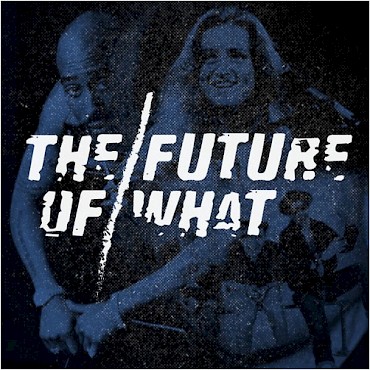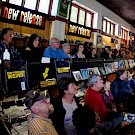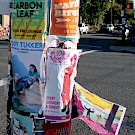 While most have heard of A&R, many outside of the music business might not know what the term stands for—let alone what responsibilities belong to an A&R department at a record label. To make things even more complicated, A&R (or artists and repertoire) has changed in stride with the larger music industry.
While most have heard of A&R, many outside of the music business might not know what the term stands for—let alone what responsibilities belong to an A&R department at a record label. To make things even more complicated, A&R (or artists and repertoire) has changed in stride with the larger music industry.
To get to the bottom of what A&R representatives do and how the job has evolved, we went straight to the source. Tom Whalley has been a major player in the music business for years. As an A&R guy, he signed artists like Tupac Shakur, The White Stripes and many more. But Whalley wasn’t always a big shot in the tastemaking world. He told host Portia Sabin how he started out in the mailroom at Warner Bros. Records in 1979. Instead of stagnating there, Whalley used the experience to his advantage. While still in the mailroom, but after setting his sights on the A&R department, Whalley went to shows at night. There he took his own notes on bands to “get a better feel for what was the difference between what got signed and what didn’t get signed... and then apply my own instincts to it, to myself.”
Whalley eventually became head of A&R at Capitol Records, where he was eventually fired for signing Bonnie Raitt and the Beastie Boys. Raitt would go on to win five Grammy Awards while the Beastie Boys released critical favorite Paul’s Boutique.
In 1990, Whalley helped found Interscope Records with the simple goal: to “empower the music.” For the A&R department, Whalley says, this meant that they had enough agency to follow their instincts and “go make it happen.”
Whalley eventually went on to start his own label, Loma Vista Recordings, in 2012. Throughout his long career, Whalley’s A&R philosophy has remained consistent. He looks for artists with “some unique voice about themselves,” especially those who are “self-contained,” meaning that they write and perform their own music.
In contrast to Whalley’s vast major label A&R experience, indie label boss Louis Posen guides us through creative development at Hopeless Records. For him, the words A&R “don’t ring... as tangible.” The label, whose artists include Taking Back Sunday and Yellowcard, operates its talent scouting program as a team, taking recommendations from everyone from distributors to publicists. “We don’t think that we’re better than anyone else,” Posen says, “so we’ll take any suggestion anybody has.” However, Hopeless does have a vision: “We are a lifestyle and culture company,” Posen says. “Although we look at things other labels look at... we really fit within a culture and community [and] it’s clear to us when a band fits in that community.”
 Matador Records artist Kurt Vile at the Crystal Ballroom in 2015—click to see more photos by Autumn AndelRobby Morris, director of A&R at indie label Matador Records, takes a similar approach to finding new talent. Like Hopeless, Matador collaborates on each new act. While A&R reps like Whalley look for “self-contained artists,” Morris takes on a role often associated with traditional A&R. For Matador acts like Kurt Vile, Morris has some oversight in the recording process, connecting bands with producers or songwriters. But, Morris stresses, “no band is stranded with one A&R representative... when they sign with the label they know that they’re getting the people who actually started the label... fully emotionally invested in the project.”
Matador Records artist Kurt Vile at the Crystal Ballroom in 2015—click to see more photos by Autumn AndelRobby Morris, director of A&R at indie label Matador Records, takes a similar approach to finding new talent. Like Hopeless, Matador collaborates on each new act. While A&R reps like Whalley look for “self-contained artists,” Morris takes on a role often associated with traditional A&R. For Matador acts like Kurt Vile, Morris has some oversight in the recording process, connecting bands with producers or songwriters. But, Morris stresses, “no band is stranded with one A&R representative... when they sign with the label they know that they’re getting the people who actually started the label... fully emotionally invested in the project.”
Regardless of their varied backgrounds, Whalley, Posen and Morris have all felt and adapted to changes in A&R and the broader music business.
This episode features music by:
Car Seat Headrest: “Vincent”
Milk Teeth: “Swear Jar”
Andrew Bird: "Left Hand Kisses"








